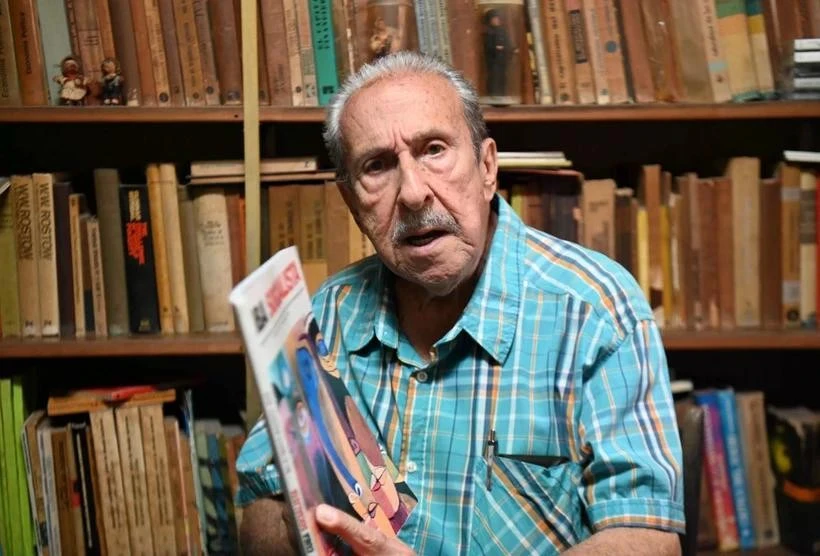
Rafael Suengas talks to Viet Nam News Agency correspondents in Cuba. (Photo: VNA)
The April 30, 1975 victory was not merely a military triumph but represented the culmination of a resilient struggle rooted in the ideology of President Ho Chi Minh, said Rafael Suengas, a revolutionary veteran who once led the Cuban Committee for Solidarity with South Viet Nam.
In 1930, with the establishment of the Communist Party of Indochina, President Ho Chi Minh laid the foundation for the national liberation movement through the power of great national unity, Suengas told Viet Nam News Agency correspondents in Cuba on the occasion of the 55th anniversary of the Liberation of the South and National Reunification (April 30, 1975–2025).
He recalled the historic moment when Liberation Army tanks rolled into the Independence Palace—a moment that held significance not only for Viet Nam but also for the global revolutionary movement.
The Cuban revolutionary veteran was particularly impressed by Viet Nam’s strategy of “fighting while negotiating.” While the people and soldiers of the North bravely endured intense B-52 bombings, Vietnamese diplomats maintained a firm stance at the Paris peace talks. Suengas said it was a perfect combination of military prowess and diplomatic intelligence.
Beyond politics and military affairs, Viet Nam held deep personal meaning for Suengas. Recounting the harsh days of war, his eyes lit up as he spoke of the special bond between the two nations. He remembered working alongside Liberation Army soldiers during a sugarcane harvest in Cuba under the scorching sun of 1970. They worked tirelessly, as if they were still fighting in their homeland, he said.
This sentiment, according to Suengas, was not his alone but shared by the Cuban people. During the most intense years of the war, all of Cuba seemed to hold its breath, following every development in Viet Nam.
The Cuban people's deep affection towards Viet Nam was expressed not only in words but also through concrete actions. In 1964, amid the war, ballet legend Alicia Alonso and the Cuban National Ballet braved hardships to perform in Viet Nam for the first time—an act of profound solidarity. Cuban doctors also volunteered to assist and treat wounded soldiers and civilians in Viet Nam.
Suengas quoted Cuban leader Fidel Castro’s immortal statement: “For Viet Nam, Cuba is willing to shed its own blood,” and affirmed that this was not merely a slogan as thousands of young Cubans really wished to stand shoulder to shoulder with their Vietnamese comrades in the battlefield.
According to the revolutionary veteran, the greatest lesson from the April 30 victory is the power of great national unity.
Fifty years after reunification, the lesson from Viet Nam remains as relevant as ever: A nation, no matter how small, can defeat any invading force if it is united and steadfast. Viet Nam will forever be a beacon for movements fighting for justice./.
Source: VNA




.jpg)






